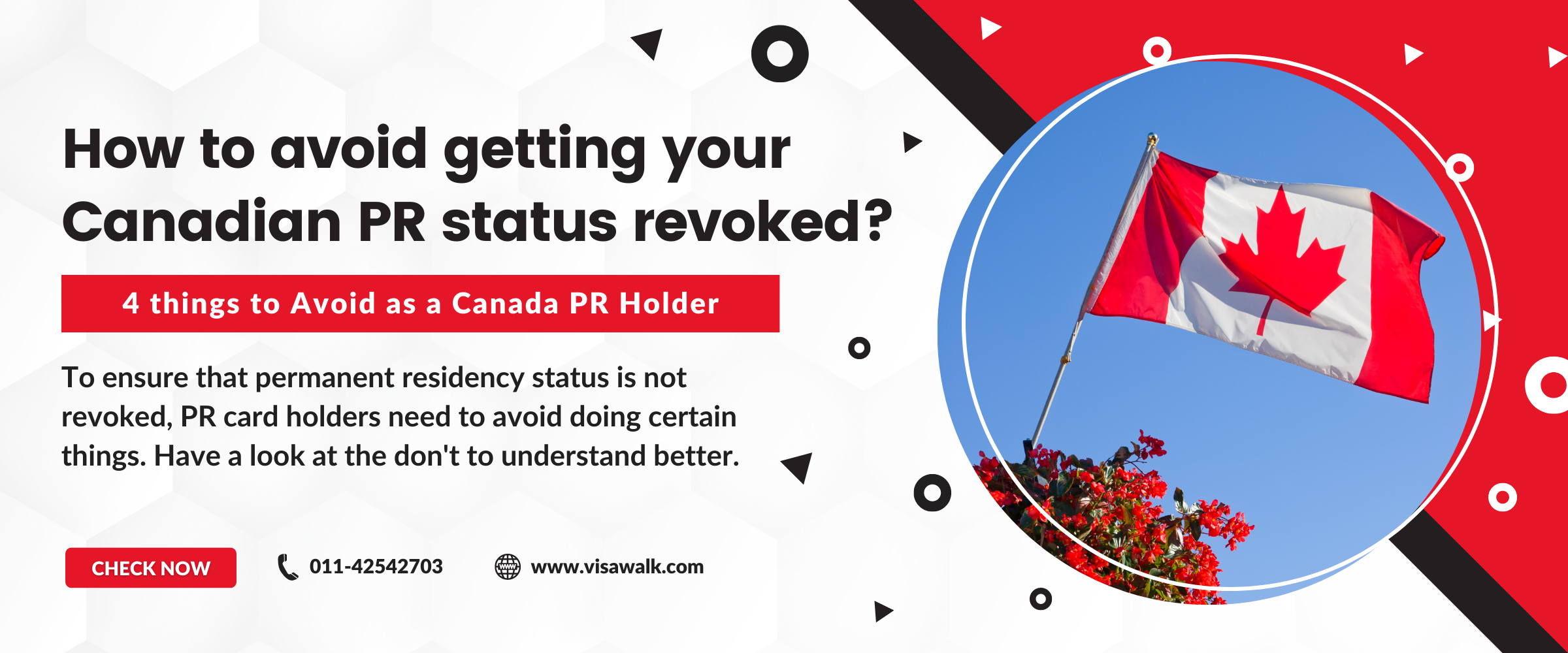How to avoid getting your Canadian PR status revoked?

Canada is one of the most-suited travel destinations for not only international students but skilled workers and other immigrants as well. Observing its fast-growing economy, top-level educational system, better quality of life, and beautiful destination overall, candidates from all across the globe are intrigued to grab a permanent residency status in the country. The immigration authorities of Canada ensure that their economical gaps are thoroughly met and that the candidates contributing to its economy get all the world-class living amenities possible. This is evident as every-year immigration policies are closely looked at by Immigration, Refugees, and Citizenship Canada, and all the necessary amendments are made periodically.
As per a survey conducted by Statistics Canada, three out of ten international students get permanent residency status in Canada following a valid study permit. This is true for most of the skilled workers as well who immigrate to Canada under relevant job profiles. The residency status is granted based on the candidate’s previous educational qualifications, age, work experience, and other factors. Given that you qualify under all of these, you will be granted a PR card applicable for five years.
However, getting a PR card does not make you a citizen of Canada and your status can still be revoked. To ensure this doesn’t happen, permanent residents must avoid doing certain things.
1. Apply for PGWP before your course ends
Although students get 180 days after the completion of their course to either extend their study period or apply for a Post-Graduate Work Permit, it is advised to apply for one right when you’re nearing the end of the last academic session. This is to ensure you’re prepared with all the relevant paperwork, exams, and checks to get accepted for this particular exemption.
2. Come through with the Residential Obligations
A candidate is eligible for a Canadian permanent residency given that he/she is living in the country for the last two out of five years. Now the stated 730-day or two-year period of residence need not be consecutive, however; the candidate still needs to abide by the stated residential obligations.
3. Abide by the permitted work hours
Everyone likes an extra penny for their hard work. However, some are tempted to partake in illegal activities to do so. An international student is only allowed to work 20 hours a week during each academic session. In case an applicant exceeds this limit, the act is considered illegal. Performing such activities just to earn some extra bucks is not worth the effort and can cause troubles at the time of work permit or PR application for that matter.
4. Choose the right career path
A candidate Enroute obtaining the permanent residency status should make sure they are choosing a job based on their current profile. This will ensure their permanent residency in Canada. Also, to meet the basic requirements for economic class migration, the applicant must show a minimum on-year work experience (full-time) in one of the in-demand occupations. More so, the job needs to fall under the National Occupation Classification list of Canada.
Canada is one of the leading economies in the world right now. With flooding job opportunities and an ever-growing economy, Canada welcomes migrants from all around the world with open hands. With a vast range of visa options to choose from, people from different backgrounds and with different motives get a chance to migrate to Canada. To know details about immigration to Canada, contact Visa Walk today!
